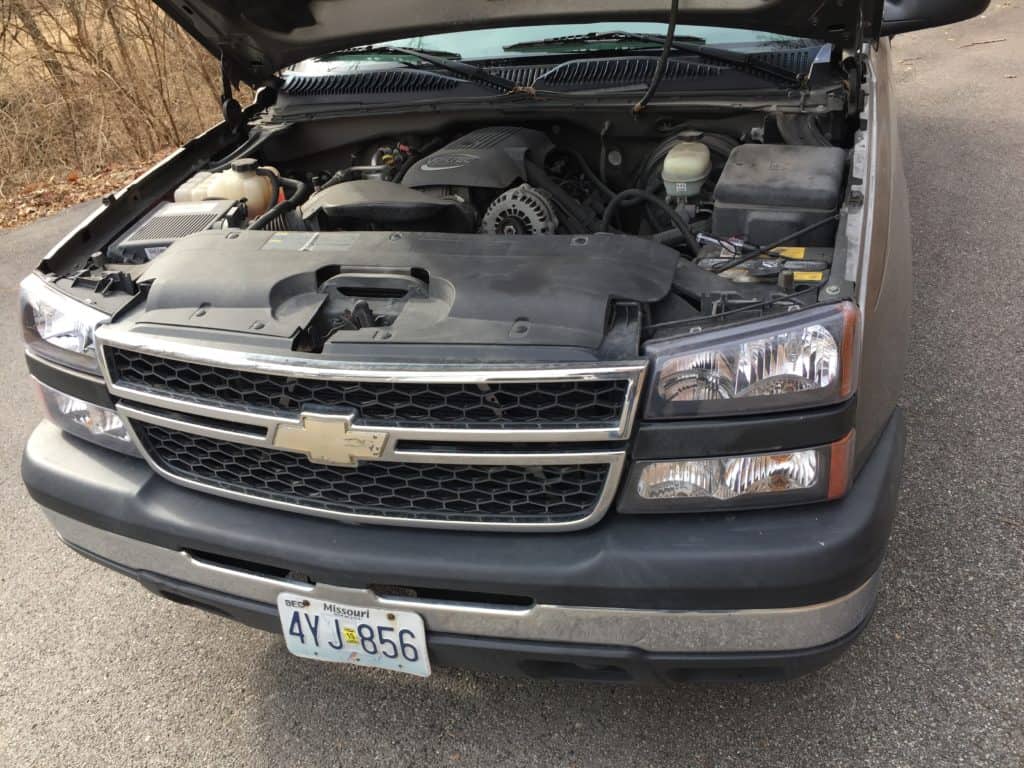The 2003 Chevy Silverado was the 5’th year of the GMT800 platform truck. After five years, most of the issues with these trucks had been worked out. Now, these trucks are getting older, and it’s very likely that your 2003 Chevy Silverado may be having transmission problems. Below, you’ll find a ton of troubleshooting your transmission problems as well as what transmission came in these trucks and how to identify them.
How to Determine Which Transmission is in Your 2003 Silverado
First and foremost, it’s necessary to determine what kind of transmission is in the truck. The easiest and quickest way to go about determining this is by RPO codes. The RP0 codes are a list of production options that are printed u p and stuck in your trucks inner glove compartment when it’s produced.
The transmission options that were available to the 2003 Silverado were as follows:
- MG5– This is the NV3500 manual transmission. It’s the only manual available for the 2003 Silverado.
- M30– This is the 4L60E automatic transmission. It came in the lighter duty trucks. It’s a four speed overdrive transmission.
- MT1– This is the 4L80E automatic transmission. It was used in HD applications.
Common 2003 Chevy Silverado Transmission Problems
This section is being presented to you as a top level troubleshooting guide, to help you determine what’s wrong with your 2003 Silverado’s transmission, and what is needed to fix it. Most of the advice and information is applicable to the two automatic transmissions that came in almost all these trucks. The NV3500 is a lot simpler piece of machinery.
Or, you can go to any of the troubleshooting guides for these transmissions:
4L60E Transmission Problems
Check Engine Light
Before doing any serious work, if you have a check engine soon light, go ahead and have it scanned to see what trouble codes it is throwing out. You might find the problem right there. AutoZone, or any other parts store will be able to help you with this for free.
What to do When Your Transmission Light Comes On
No 1’st and No Overdrive
When the truck has no overdrive and no first gear it’s almost certainly in limp mode. Limp mode is designed to keep the transmission from hurting itself when it detects something is wrong.
A couple of things to know about limp mode are that it’s not going to ruin your transmission to run it in limp mode, but it isn’t good for it either. That’s because when entering limp mode the line pressure in the transmission is increased to its maximum pressure. Another thing is, if you keep it in drive you’re only getting 3’rd gear, but if you manually shift it into 2’nd gear, it’ll go there. That makes taking off much better on the transmission. In either first or second gear, the torque converter slips more than it normally would on a takeoff.
Most of the time, limp mode is caused by loss of signal to/from the TCM. Either the wiring harness has a short or the transmission fuse is blown. It doesn’t matter whether your 2003 Silverado has a 4L60E or 4L80E, the fuse will be in the same location. I always start there. You might get lucky.
Here’s exactly how to find the 4L60E/4L80E fuse location.
No Reverse
Most of the time reverse won’t engage when the clutches are worn out. It may be (but is less likely) that the sun shell went bad as well.
Not Moving in any Gear
If your 2003 Silverado Transmission has a problem moving in any gear, it’s likely caused by a lack of transmission fluid. No matter how silly that sounds, and how convinced you are that it’s not the problem, go ahead and check it anyway. You should want this to be the problem. It’s way less expensive than replacing a bad torque converter.
Low Transmission Fluid Signs
Automatic Transmission Wont Go in Gear- Troubleshooting
Transmission Not Locking in Overdrive
The 4L60E and 4L80E both have torque converters that lock. That is to say when they are moving at a certain speed, they’ll lock and create a direct 1:1 connection between the engine and transmission. It removes all of the torque converters multiplication factor and increases drivetrain efficiency.
When the torque converter doesn’t lock, it can feel weird or jarring. You’ll go down the highway and the engine rpm will be higher and it feels almost as if the transmission is over reacting to what you are telling the gas pedal.
This is usually caused by the lockup circuit failing. There’s a switch under the brake pedal that works like a brake light switch that tells this circuit when it’s time to activate. Both sides will be hot when it’s working properly.
2003 Chevy Silverado Transmission Recalls
There have been no recalls on any of the transmissions that come equipped in the 2003 Chevy Silverado. For a complete list of recalls, check this list out from cars.com.

